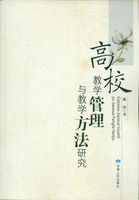Uncle Batchford died a single man. He divided his fortune between his maiden sister, and his niece. When she came of age, Lucilla was to have an income of fifteen hundred pounds a year--on certain conditions, which the will set forth at great length. The effect of these conditions was (first) to render it absolutely impossible for Reverend Finch, under any circumstances whatever, to legally inherit a single farthing of the money--and (secondly), to detach Lucilla from her father's household, and to place her under the care of her maiden aunt, so long as she remained unmarried, for a period of three months in every year.
The will avowed the object of this last condition in the plainest words.
"I die as I have lived" (wrote uncle Batchford), "a High Churchman and a Tory. My legacy to my niece shall only take effect on these terms--namely--that she shall be removed at certain stated periods from the Dissenting and Radical influences to which she is subjected under her father's roof, and shall be placed under the care of an English gentlewoman who unites to the advantages of birth and breeding the possession of high and honorable principles"--etcetera, etcetera. Can you conceive Reverend Finch's feelings, sitting, with his daughter by his side, among the company, while the will was read, and hearing this? He got up, like a true Englishman, and made them a speech. "Ladies and gentlemen," he said, "I admit that I am a Liberal in politics, and that my wife's family are Dissenters. As an example of the principles thus engendered in my household, I beg to inform you that my daughter accepts this legacy with my full permission, and that I forgive Mr. Batchford."
With that, he walked out, with his daughter on his arm. He had heard enough, please to observe, to satisfy him that Lucilla (while she lived unmarried) could do what she liked with her income. Before they had got back to Dimchurch, Reverend Finch had completed a domestic arrangement which permitted his daughter to occupy a perfectly independent position in the rectory, and which placed in her father's pockets--as Miss Finch's contribution to the housekeeping--five hundred a year.
(Do you know what I felt when I heard this? I felt the deepest regret that Finch of the liberal principles had not made a third with my poor Pratolungo and me in Central America. With him to advise us, we should have saved the sacred cause of Freedom without spending a single farthing on it!)
The old side of the rectory, hitherto uninhabited, was put in order and furnished--of course at Lucilla's expense. On her twenty-first birthday, the repairs were completed; the first installment of the housekeeping money was paid; and the daughter was established, as an independent lodger, in her own father's house!
In order to thoroughly appreciate Finch's ingenuity, it is necessary to add here that Lucilla had shown, as she grew up, an increasing dislike of living at home. In her blind state, the endless turmoil of the children distracted her. She and her step-mother did not possess a single sympathy in common. Her relations with her father were in much the same condition.
She could compassionate his poverty, and she could treat him with the forbearance and respect due to him from his child. As to really venerating and loving him--the less said about that the better. Her happiest days had been the days she spent with her uncle and aunt; her visits to the Batchfords had grown to be longer and longer visits with every succeeding year. If the father, in appealing to the daughter's sympathies, had not dexterously contrived to unite the preservation of her independence with the continuance of her residence under his roof, she would, on coming of age, either have lived altogether with her aunt, or have set up an establishment of her own. As it was, the rector had secured his five hundred a year, on terms acceptable to both sides--and, more than that, he had got her safe under his own eye. For, remark, there was one terrible possibility threatening him in the future--the possibility of Lucilla's marriage!















